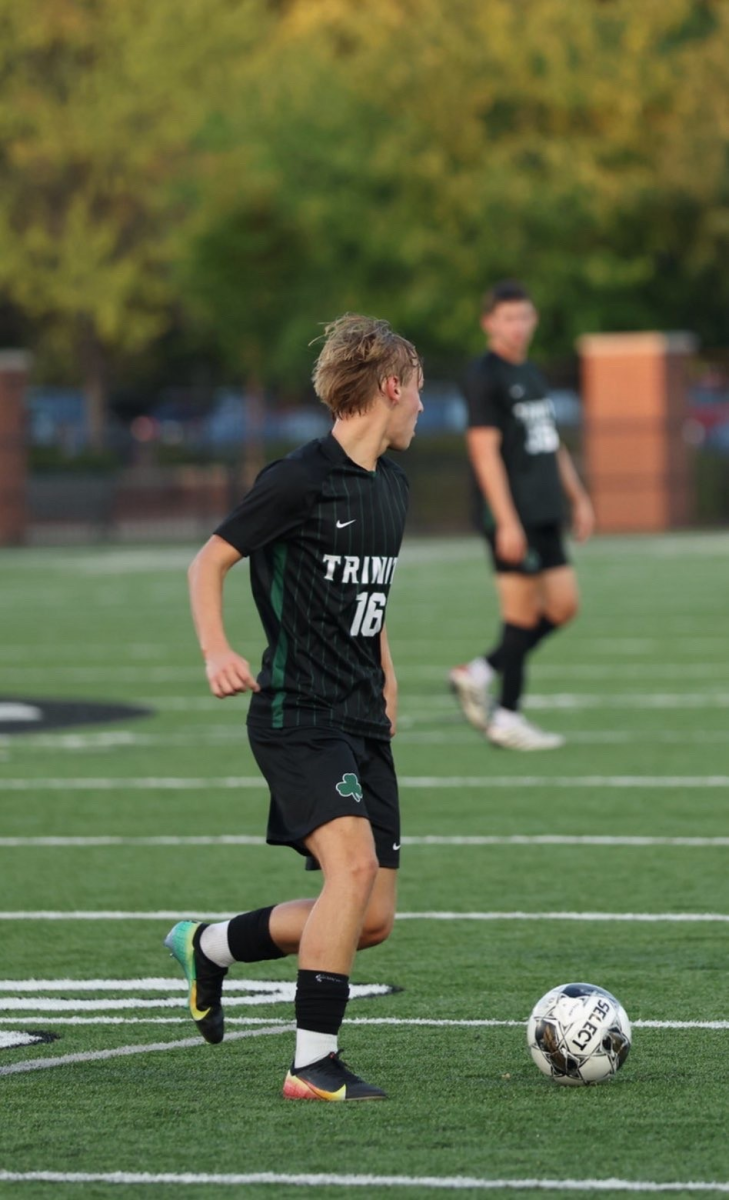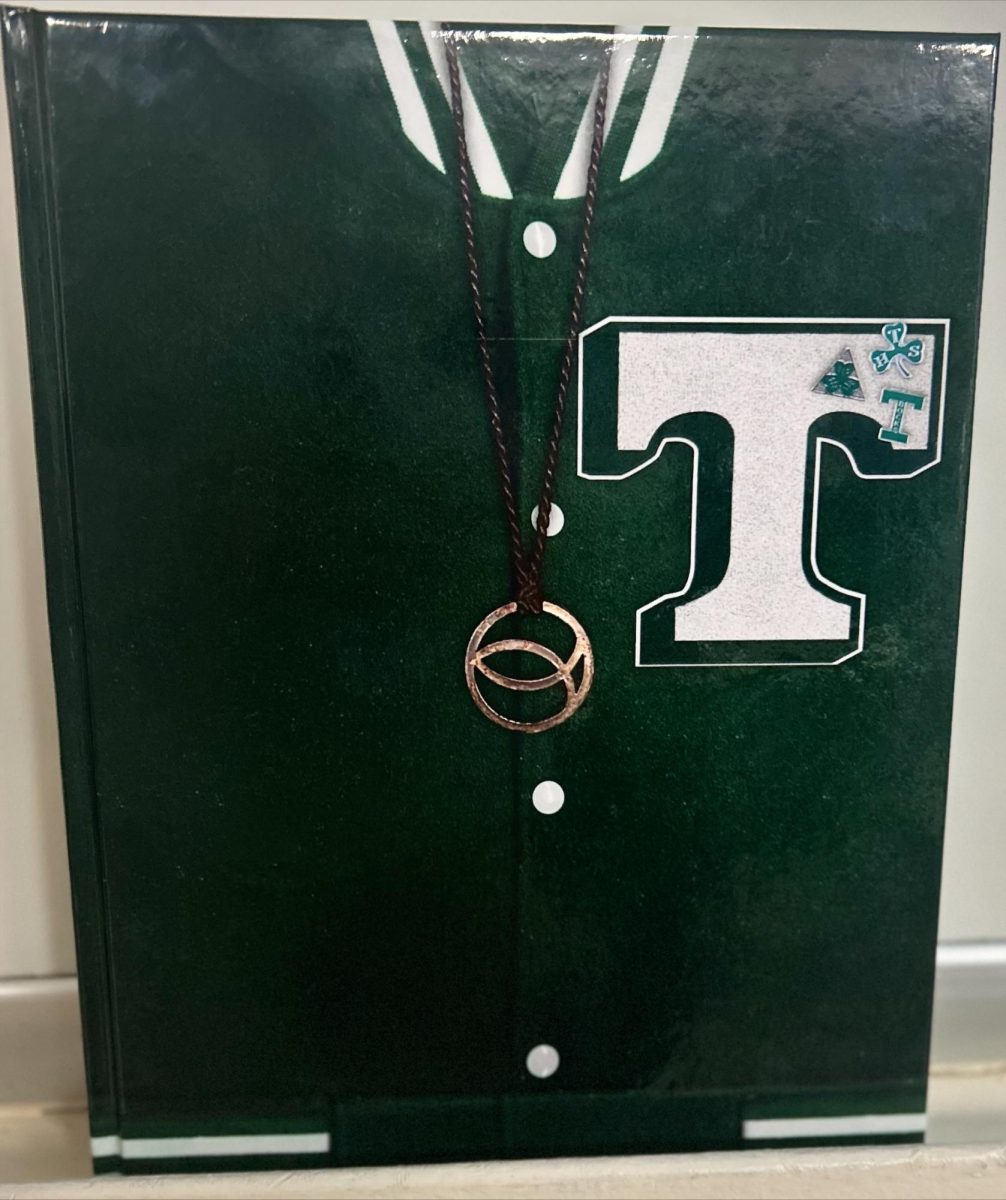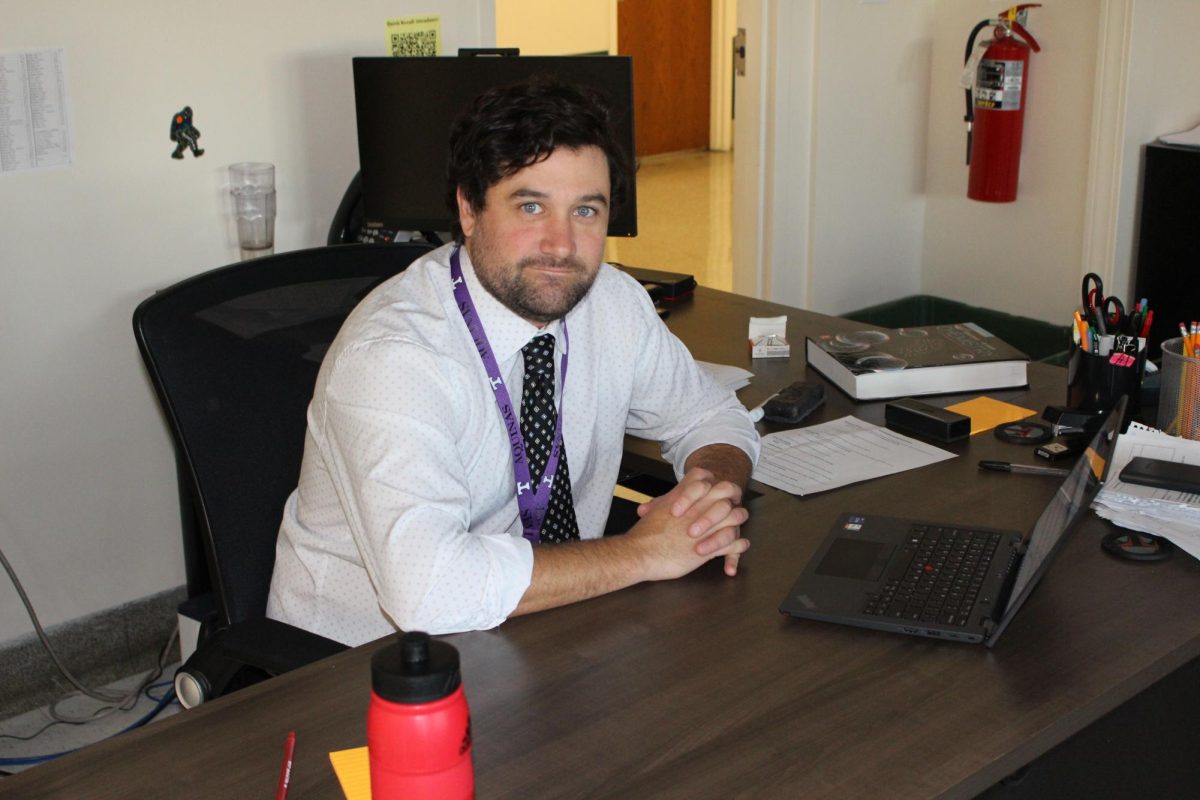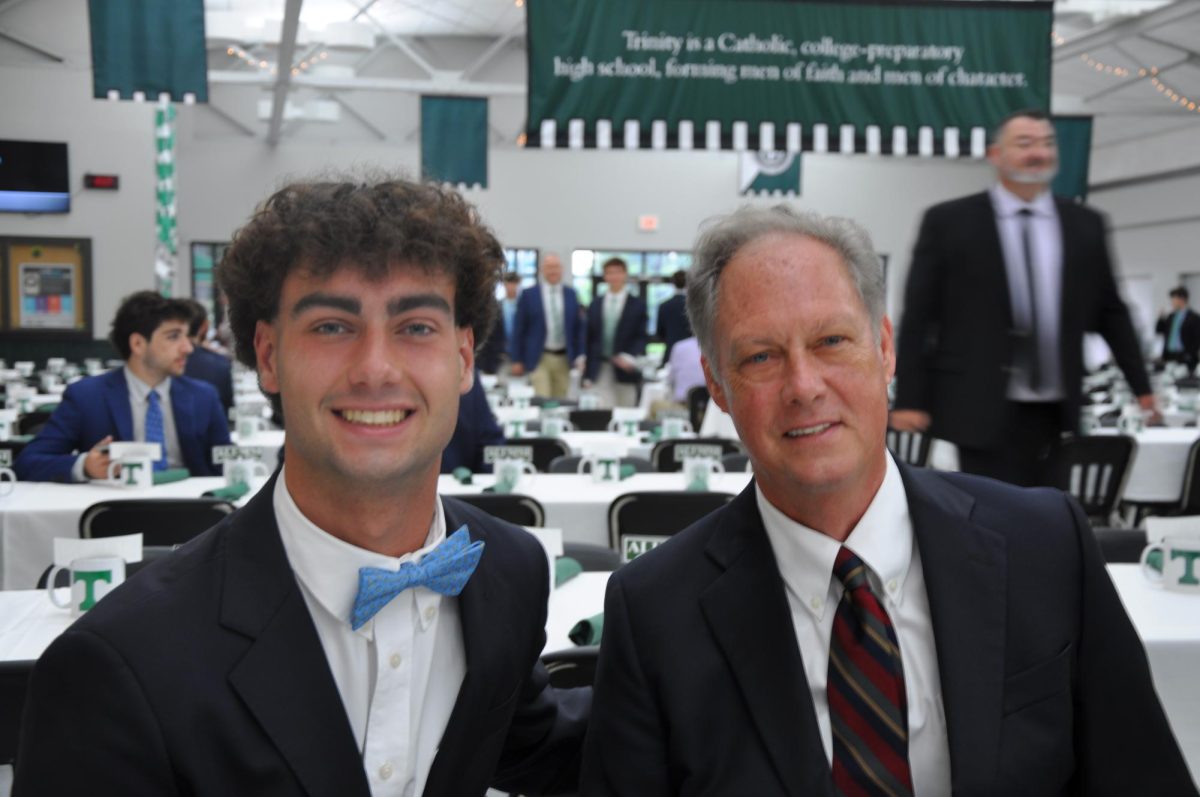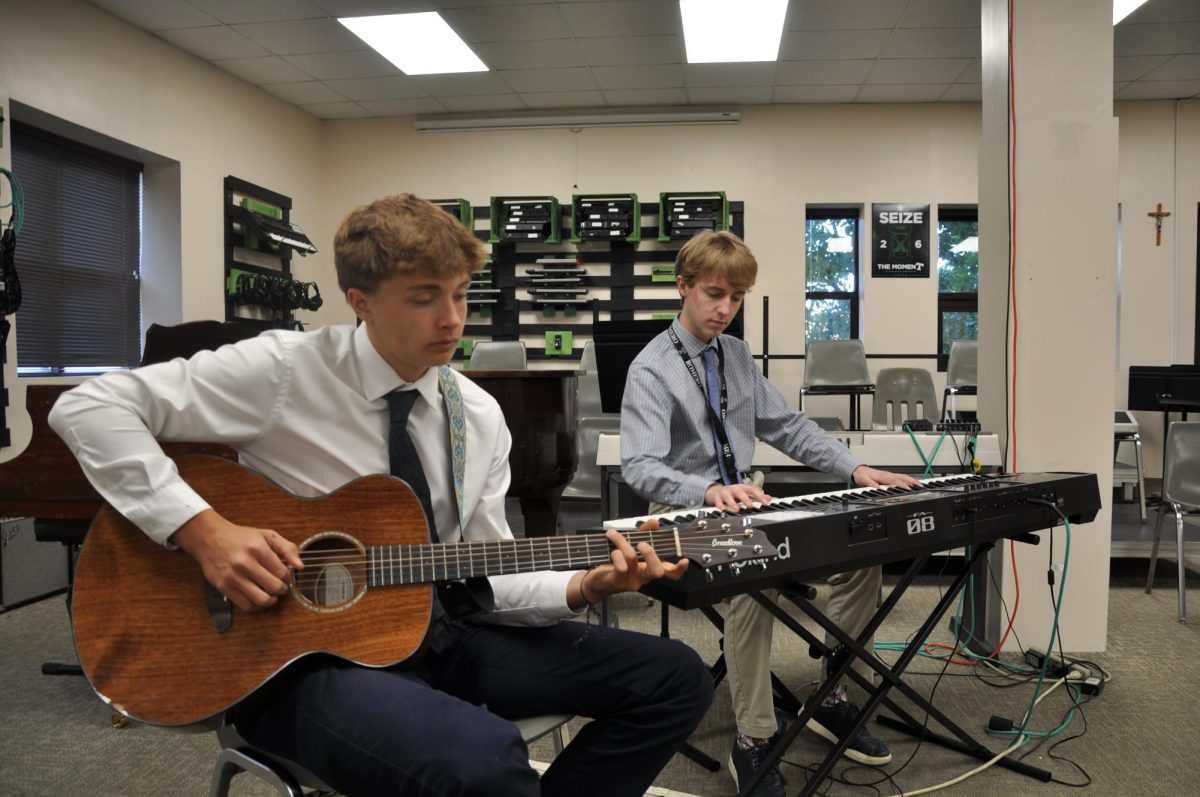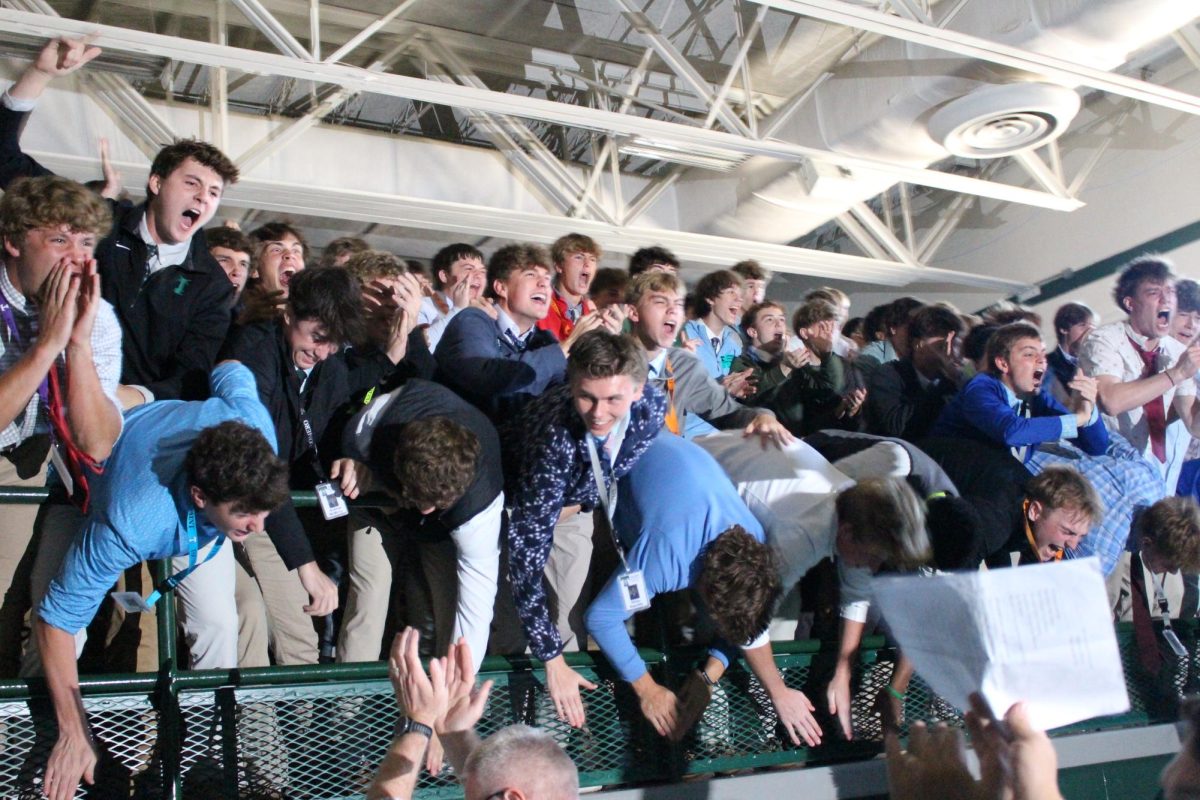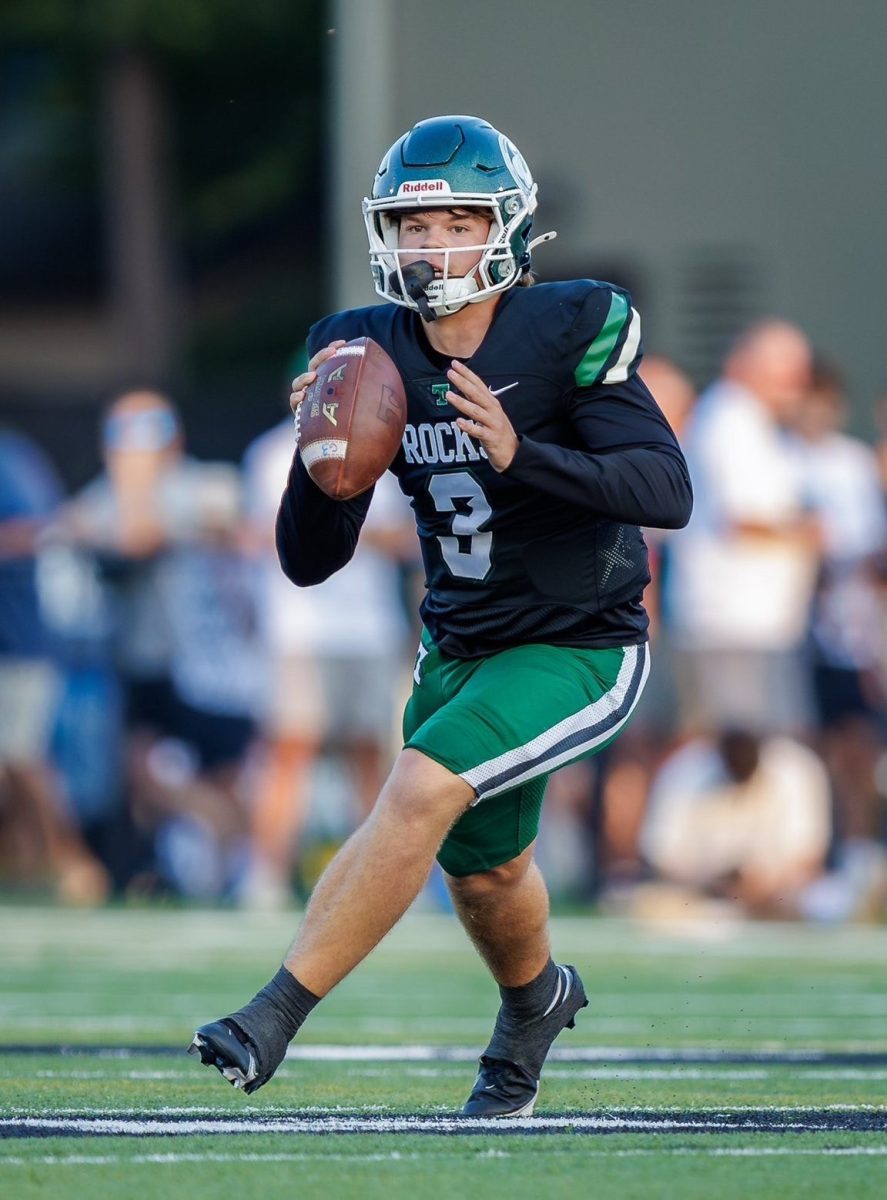Mrs. Melanie Hughes is a major contributor in working with shadows and their parents. She attributes Trinity’s diversity to its reputation, learning support program, block scheduling, sports, and legacy. Hughes, who works in the Welcome Center and has been a part of the Trinity staff for 17 years, focuses on managing the shadow process. She is directly involved with parents but also takes on more of a backend role. But it’s no small task: Trinity enrolls students from over 70 different grade schools, keeping her busy.
Hughes is one of the many members of the “backbone” of Trinity, completing her work behind the scenes. As a mother of four, she knows how to connect with and support parents of shadows. “I’m probably the first person who talks to them, and a lot of them are anxious because their sons are getting ready for high school. They don’t necessarily know what that’s going to be like. So, I think just talking them through it and reassuring them is important.” Hughes’s four sons attended Trinity, so she understands how the school operates and how to support her children through challenges. “I had two sons in the AP program, one in honors, and one in academic. So, I think I’ve covered the range of experiences and understand the concerns moms have. I know it’s going to be okay because I’ve been through it.” Her husband also attended Trinity, which was a significant factor in her decision to work here.
In addition to her role in the shadow process, Hughes assists parents in their transition to high school by gathering information for scheduling shadow days and coordinating with Mr. Matt Eldridge, who matches each shadow with a host. She also manages Open House reservations, ensures that shadows receive their name tags, and handles parent emails, while Eldridge takes on more of the “face-to-face stuff.”
Hughes attributes Trinity’s diversity and variety to several factors. She explains that Trinity’s reputation is a major reason families choose the school. The various academic levels and the learning support program also attract many students, especially those who may need additional learning assistance. In addition, sports and legacy play a role in drawing students, though Hughes notes that legacy is less significant today due to the many high school options available. Trinity’s block scheduling also sets it apart, allowing students an extra day to complete homework, which can be a deciding factor for families.
All these factors contribute to Trinity’s appeal to students from across the state and even from other states. Last year, Trinity enrolled students from over 70 different grade schools, with students coming from Elizabethtown, Spencer County, and even Indiana. Hughes emphasizes that although Trinity is a Catholic high school, students do not have to be Catholic to attend, which fosters a welcoming and inclusive environment. Additionally, more public school students are now choosing Trinity, largely due to the school’s unique offerings.
Thanks to Melanie Hughes’s dedication to working with parents and shadows, Trinity continues to grow more inclusive and inviting. The school’s diversity can be attributed to its many offerings, such as block scheduling, reputation, learning programs, sports, and legacy. Financial aid is another important factor in attracting students. Last year, Trinity provided around four million dollars in financial aid to qualifying students, allowing many to attend. Trinity’s broad range of students from different backgrounds contributes to its dynamic and thriving community.


